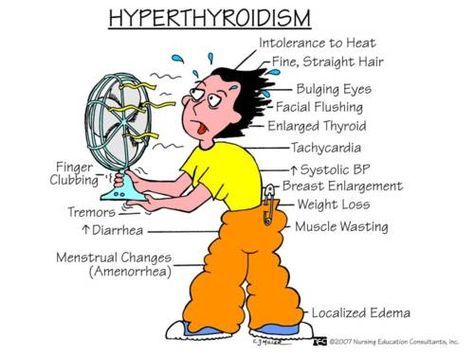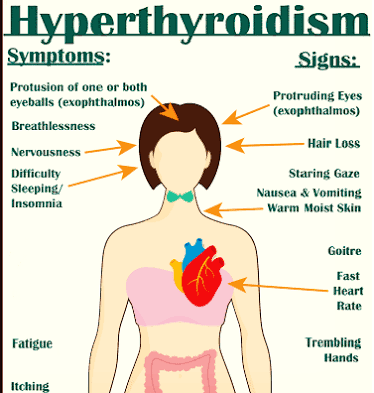
There are a few different types of hyperthyroidism. One type is called focal, and the thyroid gland is responsible for the uptake of iodine. Other forms are less common but require medical attention. If you experience any of the symptoms listed above, you may need to see a doctor. If you have been experiencing these symptoms for more than a year, you should be tested by a doctor.
Graves’ disease is a type of overactive thyroid gland. Thyroid nodules cause this condition, which is usually asymptomatic in early adulthood. Thyroiditis, on the other hand, is inflammation of the thyroid gland that can cause excessive amounts of thyroid hormone to leak into the bloodstream, causing the symptoms of hyperthyroidism. There are two kinds of thyroiditis: acute and chronic.
Inflammation of the thyroid gland is another type of hyperthyroidism. This inflammation is likely caused by a viral infection. This causes the thyroid gland to secrete too much thyroid hormone and temporarily leads to symptoms of hyperthyroidism. Fortunately, over time the condition will normalize and the symptoms will disappear. Although the symptoms of this condition can be frustrating, they are usually temporary. You may also want to take over-the-counter medications for several years to treat symptoms and reduce side effects.
The most common type of hyperthyroidism is Graves’ disease. It is caused by an autoimmune disease called Graves’ syndrome. When the thyroid gland is inflamed, it produces too much thyroid hormone. This causes a number of other problems, including increased heart rate, irregular heart rhythm, and increased risk of death. These symptoms are symptoms of an overactive thyroid gland.
Another type of hyperthyroidism is De Quervain’s disease. This type of disease affects women more often than men. This condition can be present in both young and middle-aged people and runs in families. Some symptoms of Graves’ disease include eye irritation, double vision, and difficulty closing the eyelids. However, it is important to seek medical attention at https://clubsalamanca.com.mx/ if you experience any of these symptoms.

Symptoms of hyperthyroidism are not limited to the thyroid gland. In some cases, it may be caused by an autoimmune disease. In this case, the thyroid gland produces too much thyroid hormone. An overactive thyroid gland will damage the heart and other organs. This disease can be treated with medications and lifestyle changes. You should contact your doctor if your symptoms persist. There are other signs and symptoms of hyperthyroidism.
Acute thyroid cancer is not uncommon. The most common type is Graves’ disease. It affects the thyroid gland, causing the thyroid gland to often become enlarged. This condition can cause coughing and difficulty swallowing. Because of this, it is important to seek medical help. If you have a goiter, you should have it checked immediately. If you have an autoimmune disease, you should see your doctor immediately.
There are several different types of hyperthyroidism. The most common type is called Graves’ disease, and it is a autoimmune disorder in which the thyroid gland produces too much of its own hormones. It affects only 1% of the U.S. population. In some cases, there are no symptoms, but it is important to seek medical attention if you are suffering from any of these symptoms.
Graves’ disease is a form of hyperthyroidism that affects women more than men. It can strike young, middle-aged, and elderly people, and often runs in families. Symptoms of this condition include difficulty closing the eyelids and double vision. Smokers are more likely to experience these symptoms. A thyroid gland with multiple nodules is called a toxic multi-nodular goiter.
There are different treatment options for hyperthyroidism. Depending on the type, treatment options may vary. Antithyroid medications are the most common option, but they do not cure the disease and are not a long-term solution. Most patients with the disease will need to undergo definitive treatments. The most common type of these conditions is transient. Some symptoms may not occur at all. If you suffer from this condition, you may need to undergo a thyroid scan.
